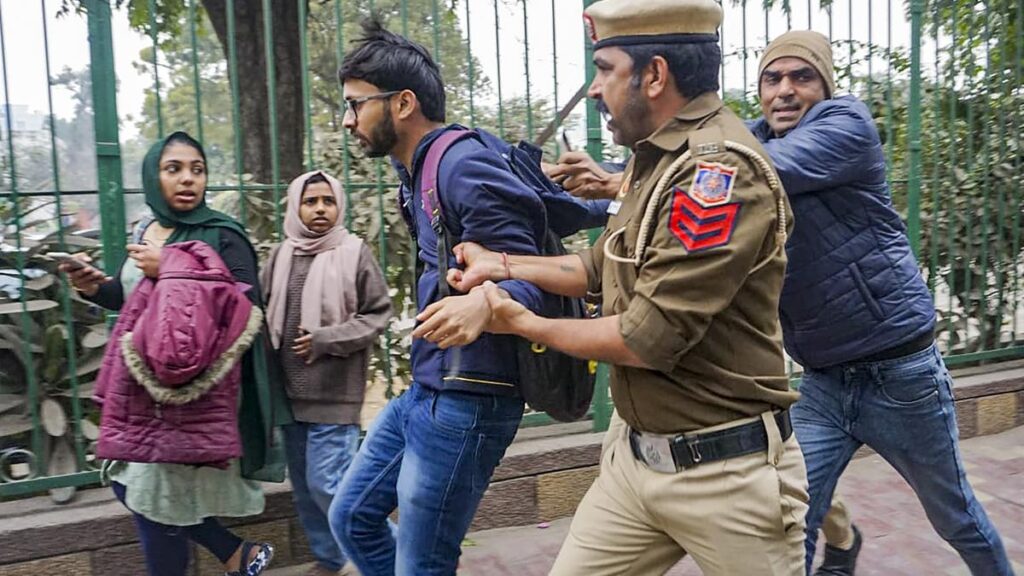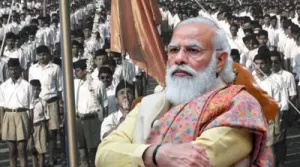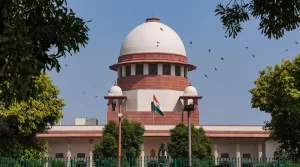A New Phase of Censorship Creep in India
The Information Technology (Intermediary Guidelines and Digital Media Ethics Code) Rules, 2021, are back in active play, causing deep concern among those who value free speech and media freedom in India. These Rules are part of a larger trend of Internet censorship, which has been growing since 2014 with “the second coming of Hindutva”.
The Ministry of Electronics and Information Technology (MeitY) recently proposed an amendment to the IT Rules 2021 that would further tighten the regime of Internet censorship. The proposal has been sharply criticised by organisations like the Internet Freedom Foundation, which believes that “this will heavily impact the freedom of speech, expression and information online, and will make the Union Government the final arbiter of what news may be published and what must be removed.”
Under the proposed amendment, there will be a new category of takedown of social media content and news media content. The target will be any information “identified as fake or false” by the new enforcers—“the fact check unit at the Press Information Bureau of the Ministry of Information and Broadcasting or other agency authorised by the Central Government for fact checking, or, in respect of any business of the Central Government, by its department in which such business is transacted under the rules of business made under clause (3) of article 77 of the Constitution.”
If the amendment is adopted, it will seriously affect the operations of not merely social media intermediaries but all providers of digital news content, including the legacy media, in India. Its unconstitutionality with respect to freedom of speech and expression guaranteed by Article 19(1)(a) is patent and one expects the higher courts to give it short shrift.
‘India: The Modi Question’
The proposal came on the heels of another disturbing development, the censorship of the first episode of the BBC’s two-part documentary, India: The Modi Question. The episode was released on BBC 2, to viewers within the UK, on January 17, and unauthorised uploads immediately began to pop up on YouTube and other websites. Two days later, the spokesperson of the Ministry of External Affairs charged that “the bias, the lack of objectivity, and, frankly, a continuing colonial mindset is blatantly visible”. He characterised the film as “a propaganda piece designed to push a particular discredited narrative” while admitting that he had not actually watched it. Worse was to follow.
On January 20, in an action that could have come straight out of George Orwell’s Nineteen Eighty-Four, the Secretary, Ministry of Information and Broadcasting, issued an order under Rule 16 (“Blocking of information in case of emergency”) of the IT Rules 2021 to deny Indian viewers access to the documentary. The blocking order and related proceedings were opaque and manifestly arbitrary, with the government failing to place either the order or the reasons for it in the public domain. However, the next day, Kanchan Gupta, Senior Adviser, Ministry of Information & Broadcasting, took it upon himself to tweet that “[the] Ministry of Information & Broadcasting has issued directions for blocking multiple @YouTube videos of first episode of @BBCWorld ’s hateful propaganda “India: The Modi Question”. Orders were also issued to @Twitter for blocking over 50 tweets with links to these YT videos. The directions to block content from @BBCWorld vicious propaganda were issued by Secretary, I&B, on Friday using the emergency powers under the IT Rules, 2021. Both @YouTube and @Twitter have complied with the directions. Governments in India.”
By way of explanation, Gupta stated that multiple Ministries had examined the BBC’s “malicious documentary” and “found it casting aspersions on the authority and credibility of [the] Supreme Court of India, sowing divisions among various Indian communities, and making unsubstantiated allegations”. Misidentifying the broadcaster, he added: “Accordingly, @BBCWorld’s vile propaganda was found to be undermining the sovereignty and integrity of India, and having the potential to adversely impact India’s friendly relations with foreign countries as also public order within the country.”
But what is India: The Modi Question really about? It is the BBC’s exploration of the Narendra Modi government’s ideological, strategic, and policy approach towards the country’s largest religious minority—India’s Muslims, who constitute nearly 15 per cent of the national population and number over 200 million—and the tensions and conflicts that arise from this. The documentary interrogates Modi’s own record, on this score, first as Chief Minister of Gujarat for twelve-and-a-half years, and then as “an enormously popular and hugely divisive” Prime Minister who is treated by Western powers as a valued ally and “a bulwark against Chinese domination of Asia”.
The spine of episode 1 is a secret report, revealed here for the first time, of a British High Commission enquiry ordered by a deeply concerned Foreign Secretary, Jack Straw, into the 2002 communal violence in Gujarat. Its findings were devastating: “Extent of violence much greater than reported. At least 2000 killed. Widespread and systematic rape of Muslim women. 138,000 internal refugees. Targeted destruction of all Muslim businesses in Hindu and mixed Hindu/Muslim areas… Reconciliation impossible while Modi remains Chief Minister.” Jack Straw and one of the investigators, a retired British diplomat whose face is not shown on camera and whose words are spoken by an actor, are interviewed in the film and explain the background and context of the enquiry and its findings.
It is important to note that the documentary makes it clear that the anti-Muslim pogrom came in the wake of the Godhra atrocity of February 27, 2002, in which 59 Hindu activists and pilgrims travelling on a train were burnt to death in an attack allegedly carried out by a group of Muslim extremists armed with stones and petrol cans.
The second episode
Episode 2 examines “the troubled relationship” between the government and India’s Muslims after Modi began his second term in 2019 with a strengthened parliamentary majority. In this episode, the filmmakers present to us arresting, if distressing, video footage, a deft mix of insightful, sense-making, and apologetic interviews, and understated comments by the BBC journalists.
The documentary makers made a good call when they decided to concentrate on the post-2019 chapter during which the Modi government moved quickly to deliver on the hardcore RSS-BJP agenda—first by doing away with the special status Jammu & Kashmir enjoyed under Article 370 of the Indian Constitution and clamping down on any sign of opposition or protest with overwhelming military and paramilitary force; and then by enacting a citizenship amendment law that openly discriminated against Muslims, and brutally suppressing the extensive protests the law triggered.
Episode 2 also brings out in an effective and moving way the periodic violence unleashed against Muslims by Hindu extremist outfits, the blaming of the victims by authorities, and the immunity the attackers have enjoyed in many cases.
The BBC documentary is well-researched, fair, and powerful. The filmmakers follow every commandment in investigative journalism’s guidebook: careful sourcing and verification; giving those against whom allegations are made, or their defenders and apologists, a chance to respond and refute; and providing context, perspective, and balance without resorting to false equivalence. In the end, it helps viewers make sense of what is happening today.
The Centre’s reaction
It is understandable that the BJP government declined to comment on the allegations when invited to do so by the journalists making the documentary. A sober way of dealing with the fallout from India: The Modi Question would have been for the government to downplay it, perhaps say it disagreed with the thrust and message of the documentary and with some comments made by those interviewed. Even a “No comment” would have been better than what followed.
Everyone knows that the real offence committed by the BBC documentary was investigating the genetic connection between Modi’s highly controversial role during the 2002 Gujarat pogrom and the panoply of post-2019 BJP government policies that discriminate against and target Muslims in new ways—muscular, violent, and toxic—and on an unprecedented scale. But the government found itself unable to come clean on this, its real objection to the documentary.
The reaction to the blocking orders was immediate and instructive. Downloads, obtained in various ways, have been widely shared. Mass screenings have been organised in public places by opposition parties, independent organisations, spontaneously formed film groups, and students in several parts of India—and people have flocked to watch the banned film. In Delhi, top management at Jawaharlal Nehru University and Jamia Millia Islamia University attempted heavy-handedly to bar students from organising screenings on campus. All this served to fuel greater interest and excitement over the documentary.
Somewhat sheepishly, the BJP government has let it be known that it has no intention of blocking episode 2, which apparently does not violate India’s IT Rules 2021 and can still be watched on a website or two, plus the unauthorised downloads. The government seems belatedly to have realised that censorship and bans only bring on a “Streisand effect”. (Look it up.)
There was a time when I believed, and proclaimed in various forums, that with freedom of speech and expression and, by extension, the freedom, independence, and general state of the press, India was in an enviable position in relation to every other developing country. If I were to claim anything like that today, I would be vulnerable to the charge of purveying “fake or false” news, with no need for any fact check by the PIB.
(N. Ram, former Editor-in-Chief of The Hindu and Frontline, is currently a Director in The Hindu Group Publishing Private Limited. He is the recipient of several journalism awards and of the Padma Bhushan (for journalism), 1990, and Sri Lanka Ratna, 2005. Courtesy: Frontline magazine.)
❈ ❈ ❈
An Editorial in ‘The Wire’ adds:
A distinct chill has set in this January. The first month of the New Year has spelt trouble for anybody interested in India’s future as a democracy – where freedom of expression ought to be guaranteed. Not to speak of our newly minted status as the ‘mother of democracy.’ There are things happening, which must be seen together to understand the reality: Censorship is here.
First, there was a ‘draft amendment’ pushed into the Ministry of Information and Technology’s infamous IT Rules, 2021, last week, stating, in effect, that any news which the Union government’s official mouthpiece, the Press Information Bureau (PIB) regards as fake, will have to be taken down. Moreover, the amendment gives this power not just to the PIB, but all Union government ministries and departments. Since this privilege has been given only to the Union government, this means, all state governments can be overridden by the PIB fact-check team! If allowed to go unchallenged, it would amount to agreeing that only PIB fact-checkers can do news. The rest of us can pack shop.
So why should the PIB not have the last word? Plenty of decent fact-checking has exposed its fact-check team as shoddy, irrational and often, plainly wrong. But we believe at The Wire, that the competence of the PIB is not the point. Even if they were the Encyclopaedia Indica, they cannot be the sole repositories of the truth. This is because their job is to advance the government’s point of view. The job of the media is to get hold of the facts, ask questions of authority and seek accountability. The mouthpiece of the entity that the media must scrutinise cannot start decreeing what the sole truth is.
The Modi government enjoys significant popular support. Other governments in the past have, too. Indira Gandhi in 1971 and Rajiv Gandhi in 1984 come to mind. But history tells us the independence of the media matters more when unbridled executive power runs strong. Media matters because ‘popular’ governments often think they are a government in perpetuity. Those myths and delusions need to be corrected. Only questions can do that and keep the government on its toes. A smart government should welcome questions, criticism and feedback. But governments don’t get that until it is too late.
Modi is the first Indian prime minister to never have addressed a press conference.
This regime has gone ahead and jailed journalists, especially in Kashmir, for the precise act of reporting and filed cases against reporters elsewhere. India is among the 30 worst countries of 180 in the world in the World Press Freedom Index of 2022. It is recognised as the Internet Shutdown capital of the world since 2015. In this context, such choke-hold amendments must be recognised for what they are.
It is not as if just views are sought to be edited by an all-controlling regime. India has been unable to conduct the Census 2021, denying us of a vital data set only a government can generate. Before 2019, the government held back private consumption expenditure data as it was unflattering. Unemployment is not recorded properly and data was withheld till elections were over in 2019. COVID-19 death undercounts were shown up by WHO’s figures and global hunger, malnutrition recorded by global agencies are denied by the government.
In such a situation, a free media is more necessary than ever, to keep the population informed. The quality of the information and perspectives that the people get ultimately determine the quality of democracy they live in. Tom-tomming a routine rotational presidency of the G-20 as an award or crown will not strengthen India, but allowing information to flow freely and safely through its length and breadth will.
The censorship of the BBC documentary on the Gujarat violence of 2002, despite giving ample airtime to the then-chief minister of the state and to pro-government analysts is unprecedented in recent times. That it has also happened under the same IT Rules shows how cynically ‘amendments’ can be deployed to protect the image of Narendra Modi.
There has been other dark news in January too: A CBI court has decreed that journalists are not protected under any law from not wanting to reveal their source.
All these things are connected. The environment is being shaped by the impunity that the Centre displays in its desire to “handle the Media.”
These were Modi’s words in the BBC documentary pulled off YouTube and Twitter. This was the one regret he said he had over the Gujarat violence 21 years ago, of being unable to “handle the media.” The lesson he said he learned then is coming to haunt India now. The national media used to preen about the 1975 Emergency being an inoculation against future drives to control the free press. That swag is beginning to sag.
As the noose around independent truth-seeking tightens, it is imperative that everyone interested in the survival of India’s democracy speaks up. It is not a matter for journalists alone. Any attack on independent journalism will come to haunt all Indians next. Pastor Neimoller comes to mind. If government impunity is allowed to carry on unchecked, there would be no one left to come to the aid of India’s democracy.
(Courtesy: The Wire.)




